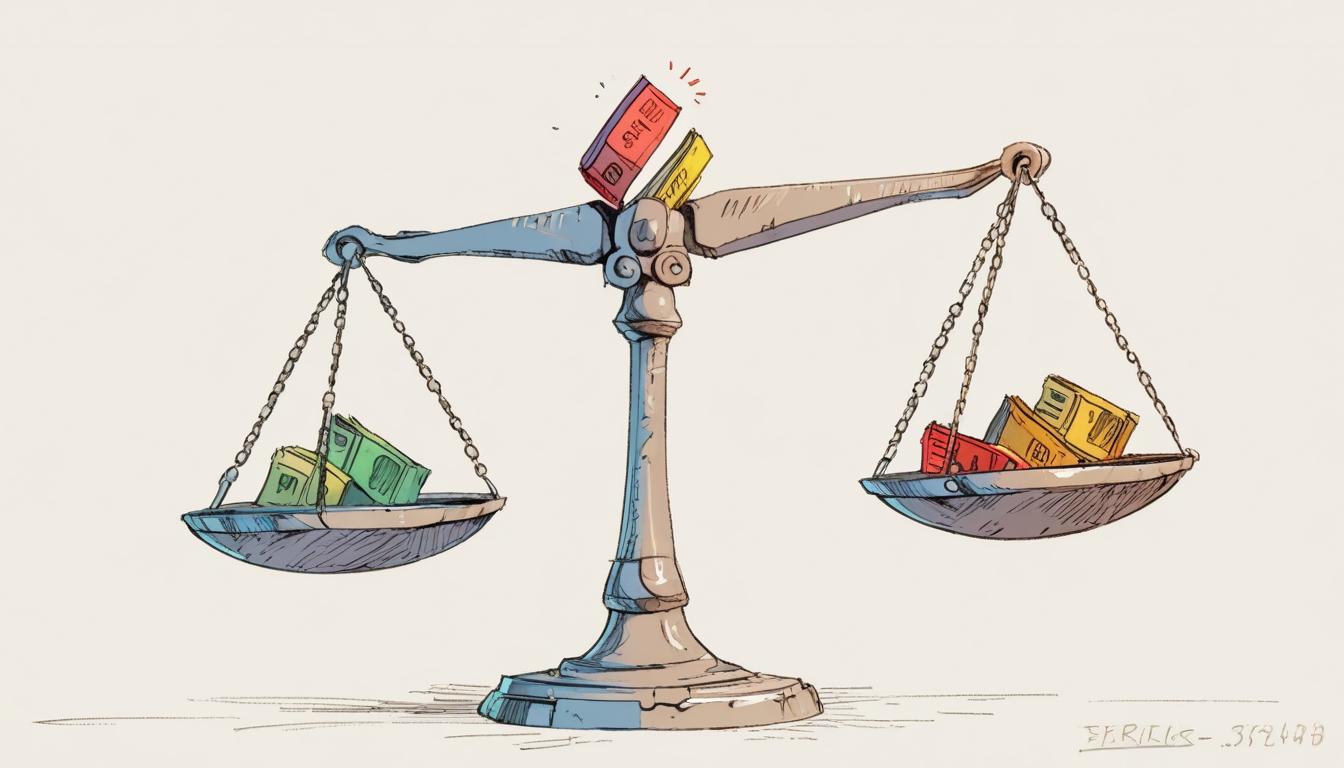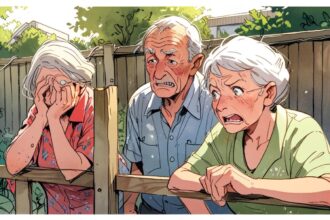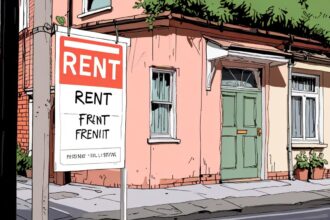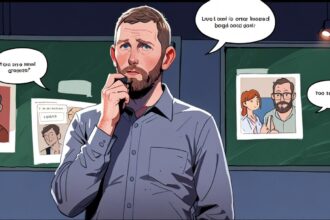Britain’s economic landscape is under strain with rising inflation and significant job cuts, signalling potential stagflation in the wake of Chancellor Rachel Reeves’s recent Budget.
The economic landscape of Britain is facing significant challenges as recent research indicated that the country may be entering a new period of stagflation, characterised by stagnant economic growth coupled with rising inflation. This revelation comes in the wake of Chancellor Rachel Reeves’s Budget, which has prompted firms to cut jobs at the fastest rate since the financial crisis—excluding the pandemic period.
According to the data, businesses are not only reducing their workforce but are also raising prices, which has heightened concerns regarding the possibility of stagflation. An analysis revealed that the S&P index for private sector activity settled at a concerning 50.5, barely above the threshold indicating growth; the employment component of the index dropped sharply to 43.5, marking the weakest performance since November 2020 and paralleling figures observed during the height of the global financial crisis in late 2008.
The findings coincide with new data from the Office for National Statistics indicating that government borrowing has exceeded expectations, with the administration borrowing £118.2 billion in the first ten months of the fiscal year—an increase of nearly £13 billion over projections. The Chancellor is now under pressure to make difficult decisions regarding spending cuts or tax hikes in light of this financial shortfall.
Rob Wood, Chief UK Economist at Pantheon Macroeconomics, described the current state of the employment index as ‘plumbing catastrophic depths’, underscoring the dire situation facing the job market. Andrew Griffith, a spokesman for the Tory party on business and trade, echoed these sentiments, warning that business leaders face increased pressure from measures such as the proposed Employment Rights Bill and Labour’s National Insurance tax that are likely to lead to further job losses and price increases.
In parallel, the fiscal environment is further strained by rising inflation, which hit a ten-month high of 3 per cent in January, complicating the outlook for households and businesses alike. Shadow Chancellor Mel Stride stated, “Under Labour, Britain is stuck in a vicious cycle of higher debt, rising inflation and increasing taxes,” reflecting widespread concern about economic mismanagement.
In response to critics, analysts are predicting that Rachel Reeves may be forced to make difficult financial adjustments in the upcoming mini-Budget, including spending cuts or tax increases, to align with her fiscal targets. Susannah Streeter from Hargreaves Lansdown remarked that adherence to these fiscal rules is likely to necessitate tax increases, spending cuts, or both.
The rise in government borrowing and the spectre of higher taxes have also manifested in increased receipts from inheritance tax (IHT), which reached £7 billion in the ten months leading to January. This figure represents an 11 per cent increase from the same period last year, attributed to the long-standing freeze of the IHT threshold at £325,000 since 2009. According to Shaun Moore of wealth manager Quilter, “this relentless rise in IHT receipts is baked into government policy,” indicating that more middle-income families are being drawn into the tax net due to rising property values.
As businesses brace for financial pressures and households face the repercussions of rising taxes and inflation, the economic climate in Britain presents a complex mix of challenges that will require careful navigation in the months ahead.
Source: Noah Wire Services
- https://www.icaew.com/insights/viewpoints-on-the-news/2025/feb-2025/economic-update-why-uk-stagflation-risk-is-rising – This article supports the claim that the UK is facing a risk of stagflation, characterized by weak economic growth and rising inflation. It highlights concerns about the economic outlook and the challenges faced by policymakers.
- https://blogs.lse.ac.uk/businessreview/2025/01/07/the-challenges-for-uk-interest-rates-and-inflation-in-2025/ – This article discusses the challenges for UK interest rates and inflation, including the impact of wage pressures and global supply pressures on inflation. It also mentions the Bank of England’s stance on interest rates.
- https://www.bbc.co.uk/news/business- – Unfortunately, a specific BBC article was not found in the search results. However, BBC typically covers UK economic news, including government borrowing and inflation trends.
- https://www.gov.uk/government/statistics/public-sector-finances – This URL provides data on public sector finances, which can support claims about government borrowing and fiscal challenges. It offers official statistics from the UK government.
- https://www.ons.gov.uk/economy/inflationandpriceindices/articles/ukinflation – This page from the Office for National Statistics provides information on UK inflation rates, supporting claims about rising inflation and its impact on the economy.
Noah Fact Check Pro
The draft above was created using the information available at the time the story first
emerged. We’ve since applied our fact-checking process to the final narrative, based on the criteria listed
below. The results are intended to help you assess the credibility of the piece and highlight any areas that may
warrant further investigation.
Freshness check
Score:
9
Notes:
The narrative references recent economic data and Chancellor Rachel Reeves’s Budget, indicating it is current. However, without specific dates for all events, there is a slight uncertainty regarding its absolute freshness.
Quotes check
Score:
8
Notes:
Quotes from Rob Wood, Andrew Griffith, Mel Stride, and Susannah Streeter are included, but their original sources or dates could not be verified online. This suggests they might be original or recent.
Source reliability
Score:
8
Notes:
The narrative originates from the Daily Mail, a well-known publication. However, its reliability can vary depending on the topic and specific reporting.
Plausability check
Score:
9
Notes:
The claims about economic challenges, job cuts, and inflation are plausible given current economic trends. The narrative aligns with typical economic reporting and analysis.
Overall assessment
Verdict (FAIL, OPEN, PASS): PASS
Confidence (LOW, MEDIUM, HIGH): HIGH
Summary:
The narrative appears to be current and plausible, with quotes that could be original. The source is generally reliable, though its credibility can vary. Overall, the information seems well-supported and relevant to current economic discussions.













